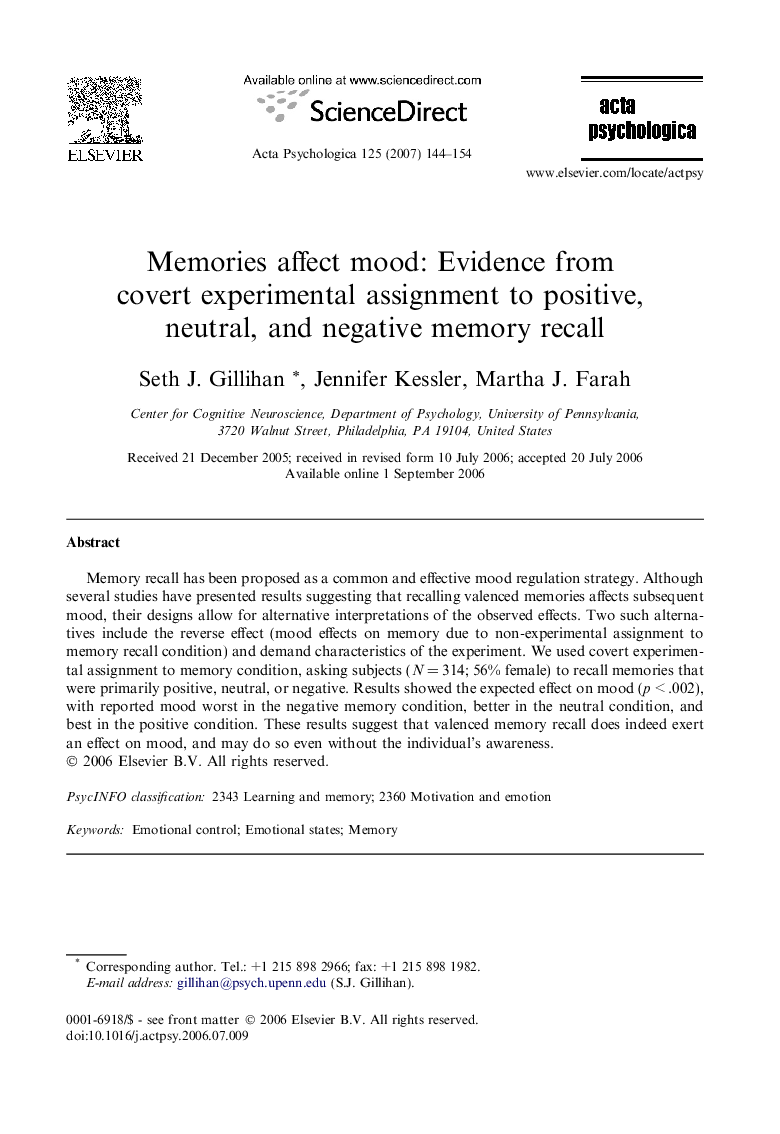| Article ID | Journal | Published Year | Pages | File Type |
|---|---|---|---|---|
| 920535 | Acta Psychologica | 2007 | 11 Pages |
Memory recall has been proposed as a common and effective mood regulation strategy. Although several studies have presented results suggesting that recalling valenced memories affects subsequent mood, their designs allow for alternative interpretations of the observed effects. Two such alternatives include the reverse effect (mood effects on memory due to non-experimental assignment to memory recall condition) and demand characteristics of the experiment. We used covert experimental assignment to memory condition, asking subjects (N = 314; 56% female) to recall memories that were primarily positive, neutral, or negative. Results showed the expected effect on mood (p < .002), with reported mood worst in the negative memory condition, better in the neutral condition, and best in the positive condition. These results suggest that valenced memory recall does indeed exert an effect on mood, and may do so even without the individual’s awareness.
